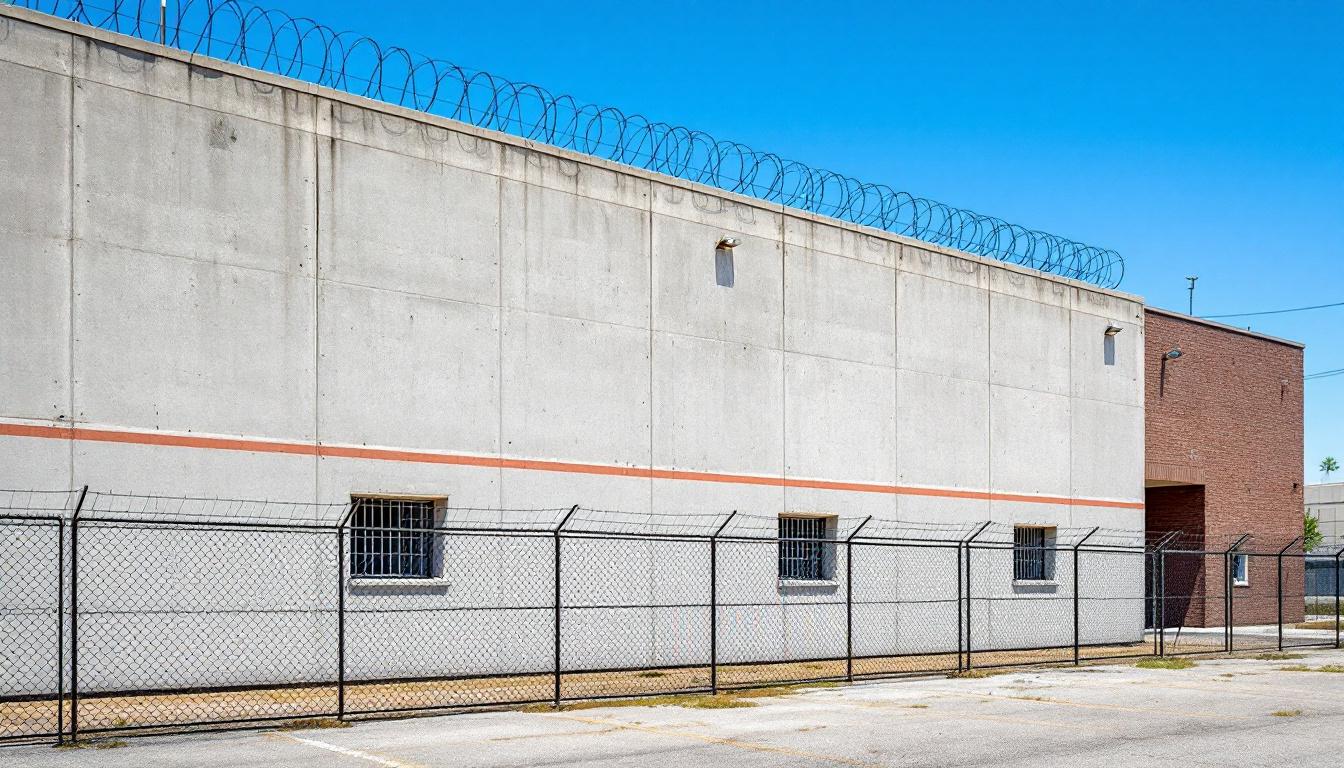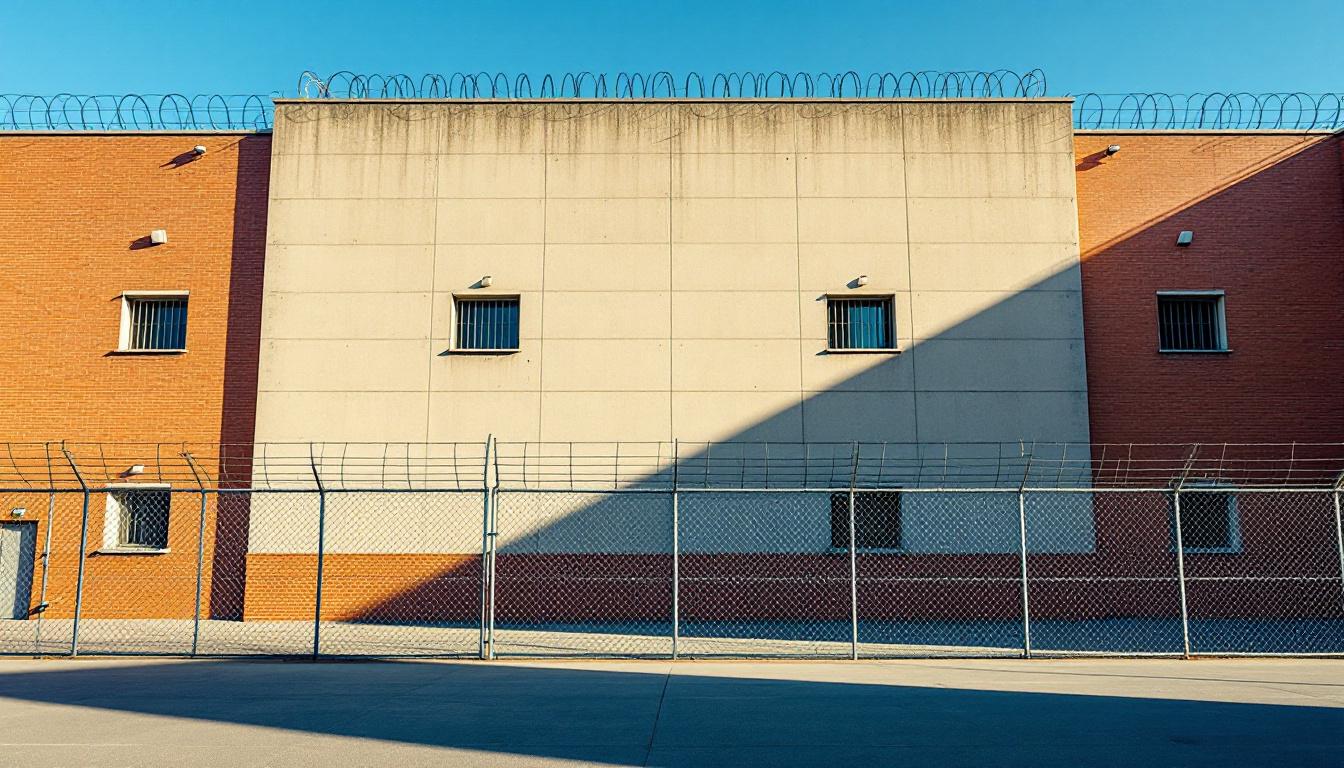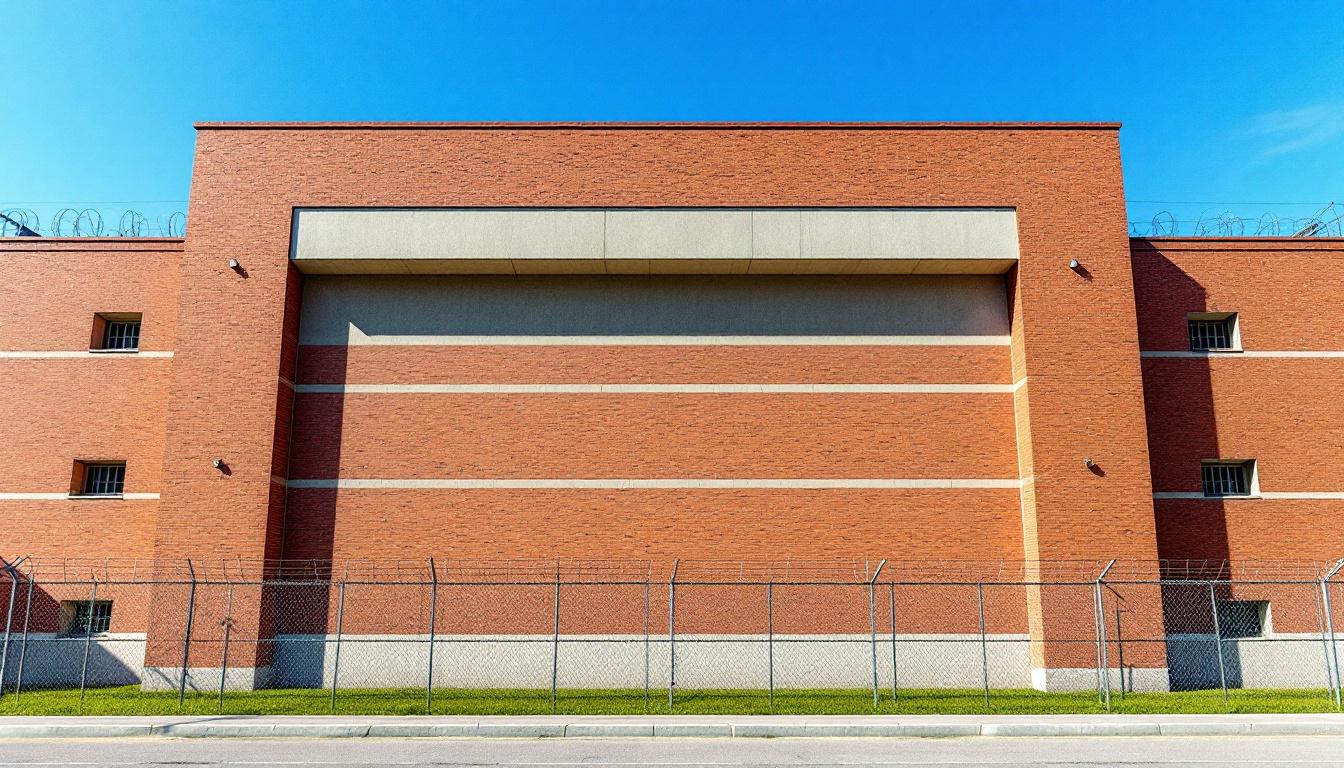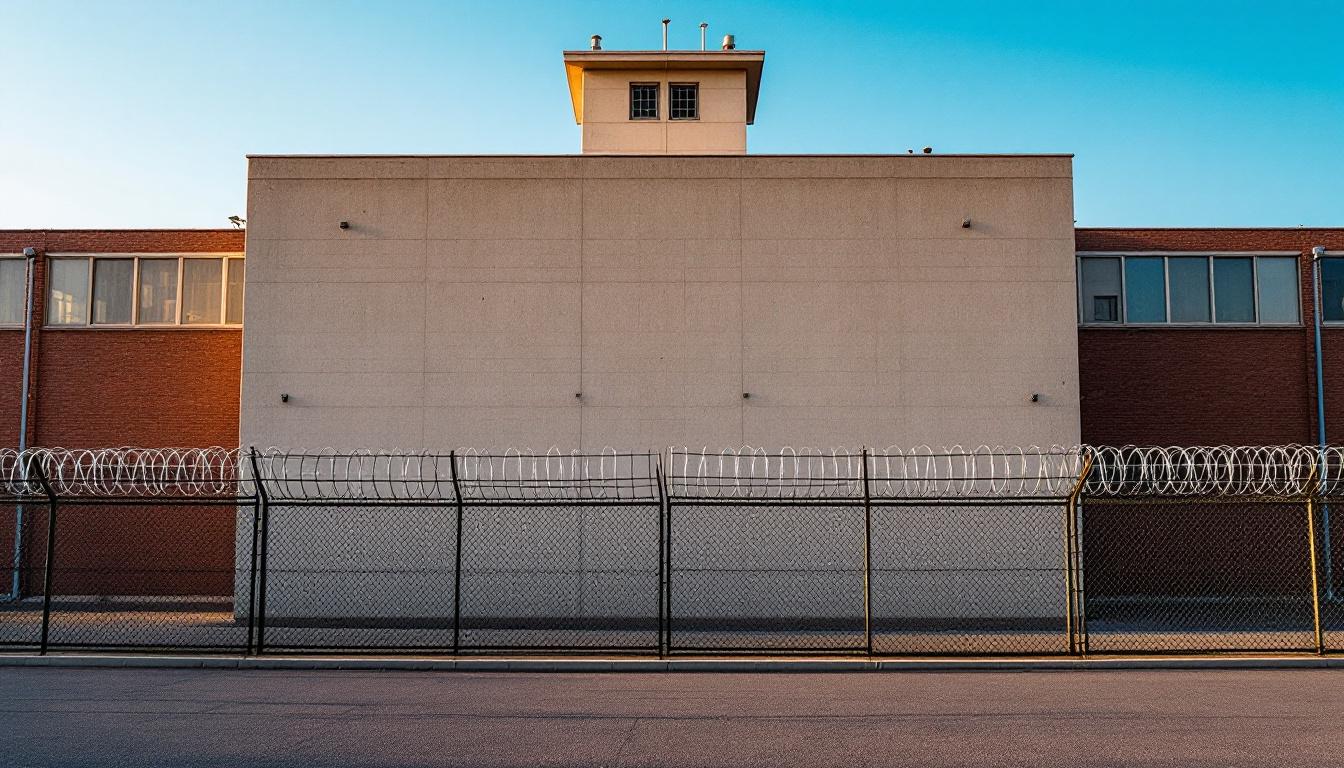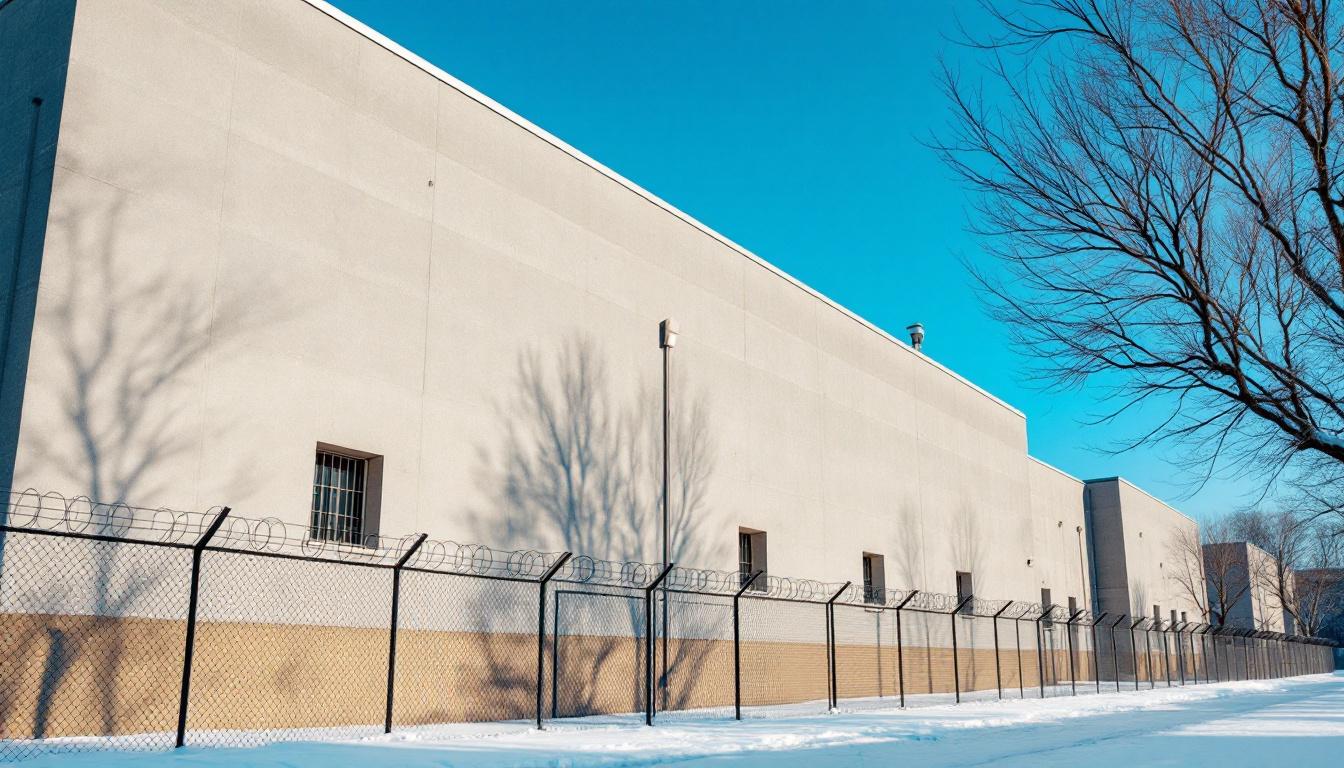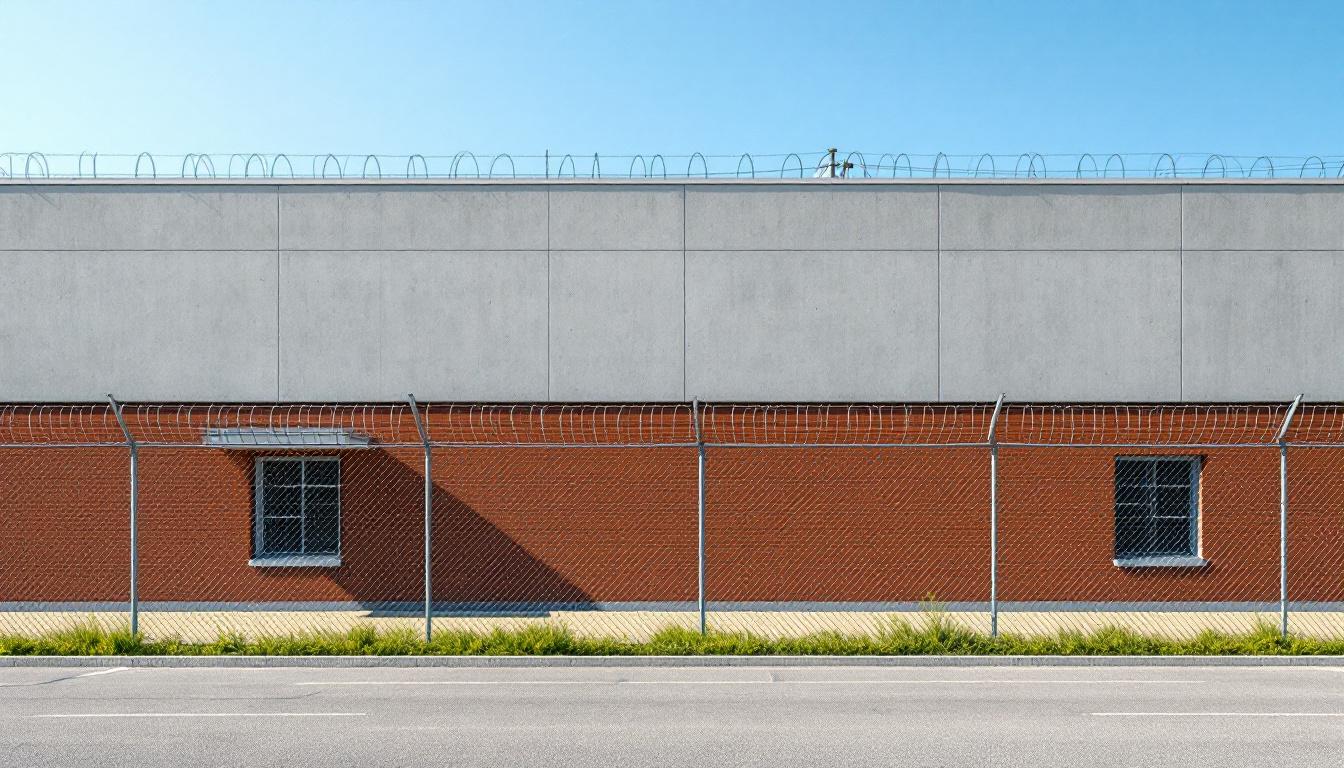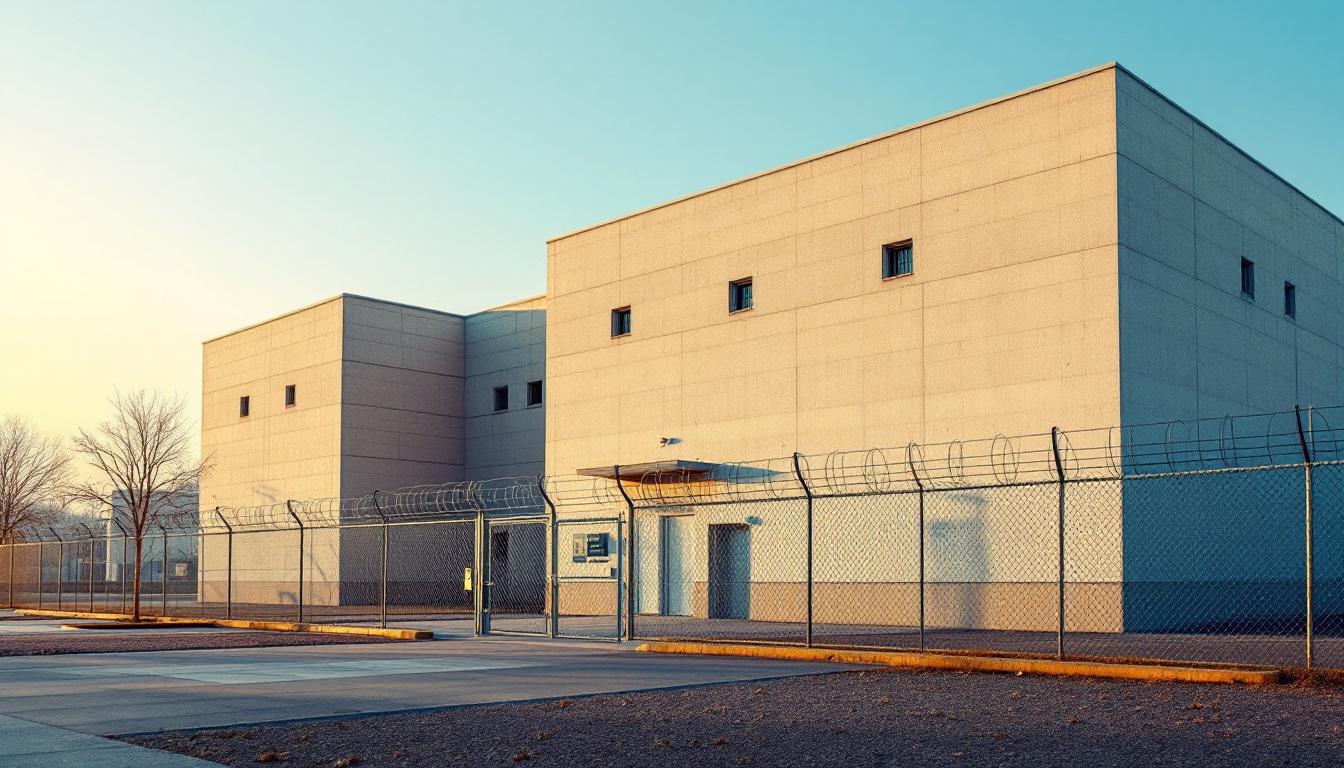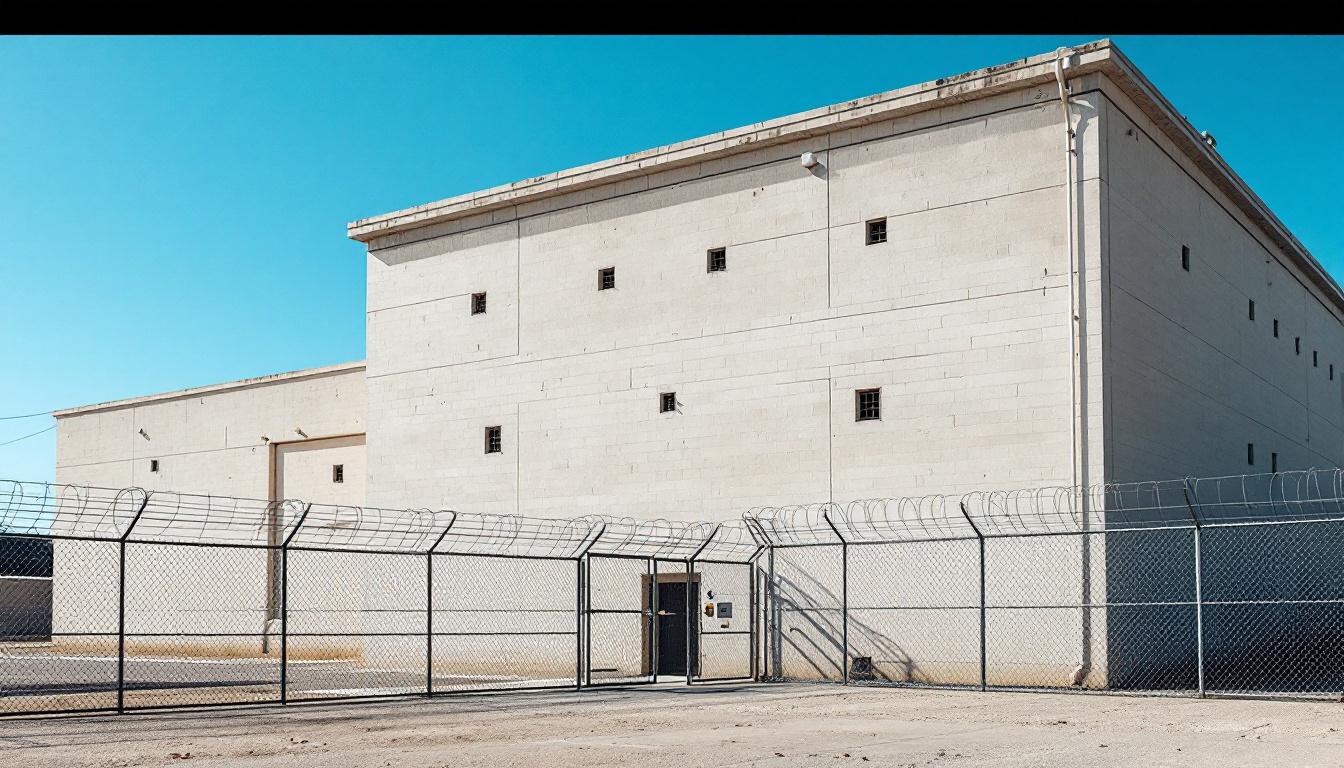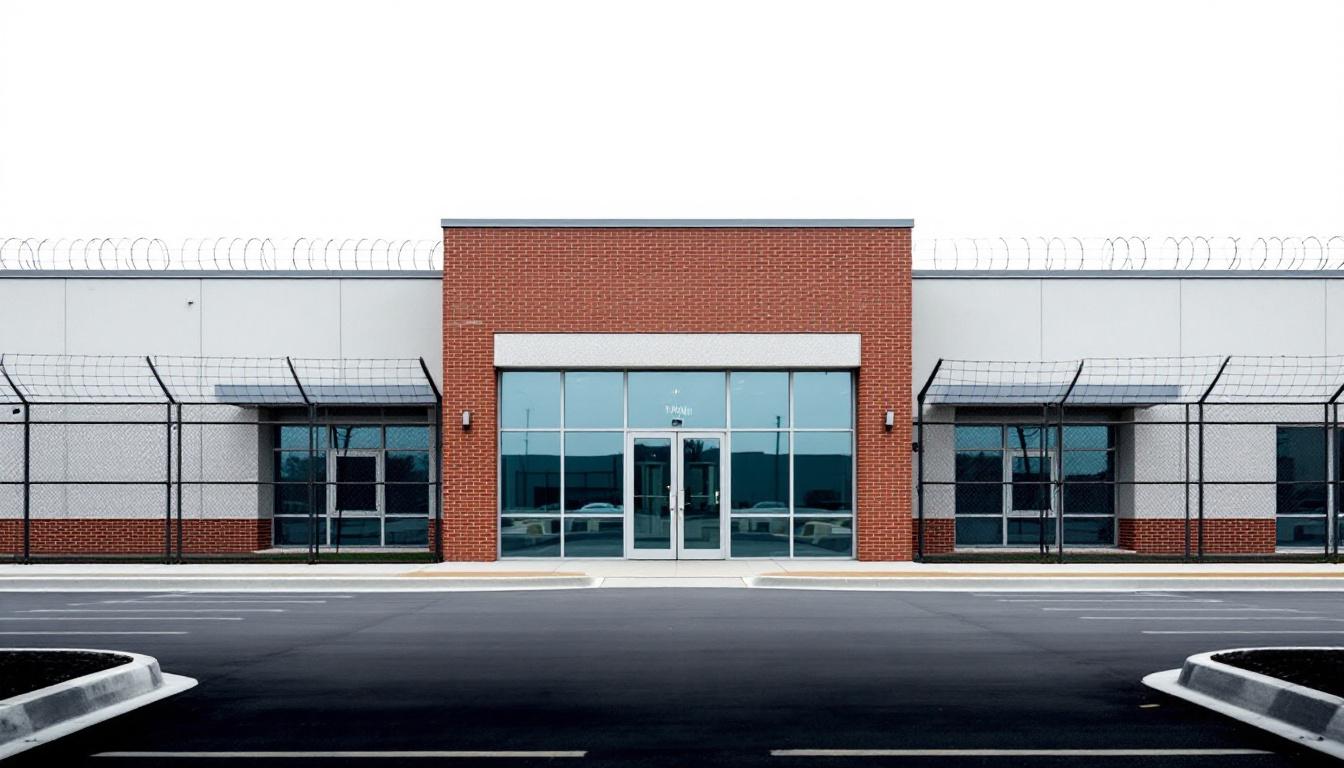
Quick Navigation
How to contact an inmate at Lasalle Correctional Center
This comprehensive guide will walk you through how to connect with an inmate at Lasalle Correctional Center. Follow the steps below to find an inmate and send letters and photos:
- Search for the inmate using our search tool below
- Create your account or log in to Penmate
- Write your message (up to 6,000 characters)
- Send instantly - inmates receive printed copies daily
Find an Inmate
Search for an inmate to start communicating today
Tip: You can search by first name, last name, or inmate ID number
To contact a person at Lasalle Correctional Center start by searching for the person on the official facility website. Perform a search by following these steps:
- Step 1: Enter their first name and last name into the search form and click "Search"
- Step 2: Locate their inmate record
- Step 3: Write down their Inmate ID and any housing information provided
Important! Be sure to enter the person's full name. Nicknames should not be used.
How to Send Messages to Inmates

You can use your phone or computer to send emails, letters, and photos to an inmate. Messages are sent electronically to inmate tablets or kiosks at the facility. If you would like to send a message, start by searching for an inmate at Lasalle Correctional Center.
Sending Photos and Postcards

A great way to send love and support to a loved one at Lasalle Correctional Center is to send photos and postcards. It only takes a few minutes to send photos from your phone and it makes a huge difference. You can also mail postcards with words of support and inspiration, or design your own postcard for special moments like birthdays and holidays.
Important! Be sure not to send any explicit photos or they may not be approved by the facility. You can also use a photo printing app like Penmate to make sure your photos are printed at the correct size (4x6 or 3x5) and are mailed according to the rules and regulations of Lasalle Correctional Center.
Frequently asked questions about Lasalle Correctional Center
-
How long does it take to deliver a message?
If you're sending an email message your letter is usually delivered within 24-48 hours. For messages sent via mail you should expect delivery within 3-7 days. All messages will need be approved by Lasalle Correctional Center.
-
How much does it cost to send a message to Lasalle Correctional Center?
You can send a message free using your phone or mail a message via USPS for the price of a $0.60 stamp and envelope. You can also purchase credits or e-stamps from services starting at $1.99.
-
What services can I use to contact an inmate at Lasalle Correctional Center?
Penmate
You can use Penmate to send letters and photos to an inmate from your phone. It's an easy way to stay in touch during your loved one's incarceration. Use the inmate locator to find an inmate's location and contact information, then you can send messages within a few minutes.
Securus messaging
Securus may be another option for communicating with an inmate at Lasalle Correctional Center. You can create a friends and family account and purchase credits to send messages. All messages will be reviewed and must be approved by the facility.
JPay
Some county jails and state prisons may support sending messages with JPay. You must register an account with the system, find your loved one, and purchase stamps to send messages. For some locations you can also attach photos.
Smart Jail Mail
You may also check if Smart Jail Mail is available at Lasalle Correctional Center. Smart Jail Mail is operated by Smart Communications and has contracted with some state and county jails. After purchasing credits, your messages and photos are sent to the facility, printed out, and then handed out to your loved one.
-
What is the mailing address of Lasalle Correctional Center?
Mailing address:
Lasalle Correctional Center
15976 US-165
Olla, LA 71465
Phone: (318) 495-6200Business hours:
- Monday: Open 24 hours
- Tuesday: Open 24 hours
- Wednesday: Open 24 hours
- Thursday: Open 24 hours
- Friday: Open 24 hours
- Saturday: Open 24 hours
- Sunday: 9:00 AM – 5:00 PM
-
What are the visiting hours at Lasalle Correctional Center?
Visiting hours at Lasalle Correctional Center vary by housing unit and security level. Generally, visits are scheduled on weekends and holidays, with some facilities offering weekday visits. Contact the facility directly at (318) 495-6200 or check their website for the current visiting schedule. Visits typically last 30-60 minutes and must be scheduled in advance.
-
What items are prohibited when sending mail to Lasalle Correctional Center?
Prohibited items typically include: cash, personal checks, stamps, stickers, glitter, glue, tape, staples, paperclips, polaroid photos, musical or blank greeting cards, hardcover books, magazines with staples, and any items containing metal or electronics. Only send letters on plain white paper with blue or black ink. Photos must be printed on regular photo paper (no Polaroids). Always check with Lasalle Correctional Center for their specific mail policies.
-
How do I send money to an inmate at Lasalle Correctional Center?
You can send money to an inmate at Lasalle Correctional Center through several methods: 1) Online using JPay, Access Corrections, or the facility's approved vendor, 2) Money orders mailed directly to the facility with the inmate's name and ID number, 3) Kiosks located in the facility lobby, or 4) Over the phone using a credit or debit card. Fees vary by method, typically ranging from $2.95 to $11.95 per transaction.
-
Can I schedule a video visit with an inmate at Lasalle Correctional Center?
Many facilities now offer video visitation as an alternative to in-person visits. At Lasalle Correctional Center, video visits may be available through services like Penmate, Securus Video Connect, GTL, or ICSolutions. Video visits typically cost $10-20 for 20-30 minutes and must be scheduled in advance. You'll need a computer or smartphone with a camera and reliable internet connection. Contact the facility for their specific video visitation policies and approved vendors.
-
What identification do I need to visit an inmate at Lasalle Correctional Center?
All visitors must present valid government-issued photo identification such as a driver's license, state ID, passport, or military ID. Minors must be accompanied by a parent or legal guardian who can provide the minor's birth certificate. Some facilities require visitors to be on the inmate's approved visitation list, which may require a background check. Contact Lasalle Correctional Center for specific ID requirements and visitor approval procedures.
-
How can I find out an inmate's release date?
To find an inmate's release date at Lasalle Correctional Center, you can: 1) Use the online inmate search tool if available, 2) Call the facility's records department, 3) Contact the inmate's case manager or counselor, or 4) Have the inmate provide this information during a call or visit. For privacy reasons, some facilities only release this information to immediate family members.
Facility Overview
Official Website

About Lasalle Correctional Center
Nestled within the rural landscape of Olla, Louisiana, LaSalle Corrections Center, LA operates as an integral component of the state's broader correctional framework, where the process of rehabilitation unfolds through structured daily routines and community-focused programming. This LA correctional facility typically emphasizes a systematic approach to resident development, working collaboratively with state agencies to align local operations with Louisiana's overarching correctional objectives. The facility's location in Olla provides a setting where residents services may include educational opportunities, vocational training programs, and behavioral intervention initiatives designed to support successful community reintegration.
Through its operational processes, the correctional facility generally maintains programming that addresses multiple aspects of resident development, from basic educational advancement to specialized skill-building workshops. Staff members often work within established protocols to deliver services that may encompass substance abuse counseling, anger management courses, and job readiness preparation. The facility's approach typically involves creating structured environments where residents can engage in productive activities while developing the tools necessary for successful transition back into their communities throughout Louisiana and the broader South region.
Programs & Services
Comprehensive rehabilitation initiatives at LaSalle Corrections Center typically emphasize skill development and personal growth through evidence-based programming designed to address the multifaceted needs of residents. The facility's approach to correctional programming often integrates educational advancement, vocational preparation, and therapeutic support services to create pathways for successful community reintegration. These initiatives may deliver structured learning environments where residents can develop both practical competencies and emotional resilience necessary for sustainable lifestyle changes.
Educational and vocational initiatives form the cornerstone of the facility's rehabilitation framework, with programming that typically includes academic instruction ranging from basic literacy to high school equivalency preparation. Financial literacy courses may offer residents essential knowledge about budgeting, credit management, and economic planning that proves invaluable upon release. Also, vocational training initiatives often provide hands-on instruction in marketable trades such as construction, food service, or maintenance skills, allowing residents to develop tangible employment qualifications while serving their sentences.
Support services and therapeutic initiatives complement the educational foundation through comprehensive programming that addresses personal and family relationships. Faith-based services may deliver spiritual guidance and moral development opportunities for residents seeking religious or ethical frameworks for personal transformation. Community resource connections typically help residents establish relationships with local organizations that can provide ongoing support after release. Also, parenting classes often focus on developing healthy family dynamics and effective child-rearing strategies, recognizing that many residents will return to caregiving roles within their communities and benefit from enhanced parenting skills and family relationship management techniques.
Daily Life & Visitation
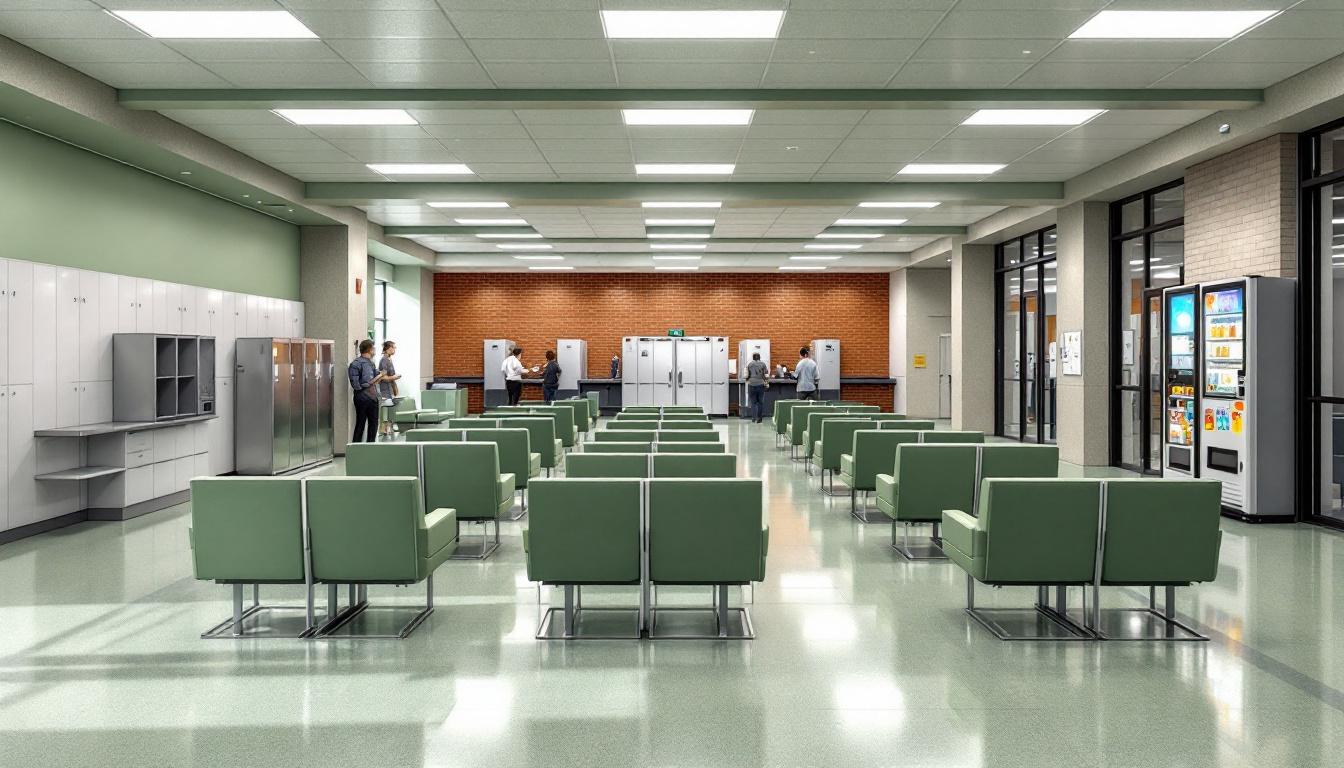
The steady rhythm of scheduled activities now anchors each day, as residents regularly move through a carefully structured routine that delivers consistency and predictability to their daily experience. Wake-up calls typically occur in the early morning hours, followed by personal hygiene time and preparation for the day ahead. Meals generally take place at designated times in the dining hall, where residents gather for breakfast, lunch, and dinner served according to established schedules. Between meals, residents usually participate in various programming activities, work assignments, or educational opportunities that may be available at the facility.
Living accommodations typically consist of shared housing units where residents maintain their personal sleeping areas and store approved personal belongings. The dormitory-style or cell-based housing arrangements generally provide basic furnishings and essential amenities, with residents often responsible for keeping their living spaces clean and organized according to facility standards. Also, residents may have access to common areas during designated times, where they can interact with others or engage in quiet activities like reading or writing letters to family members.
Programming schedules usually deliver a variety of structured activities throughout the week, which may include educational classes, vocational training opportunities, or counseling sessions depending on individual needs and facility resources. However, recreation time typically provides residents with opportunities for physical exercise, sports activities, or outdoor time when weather and security considerations permit. Family connections remain important through regular visitation schedules and phone privileges, allowing residents to maintain contact with their support systems. Also, commissary services generally enable residents to purchase approved personal items and snacks to supplement their daily needs, helping them maintain some personal autonomy within the structured environment.
Ready to Connect?
Start communicating with your loved one today
Search for an Inmate
